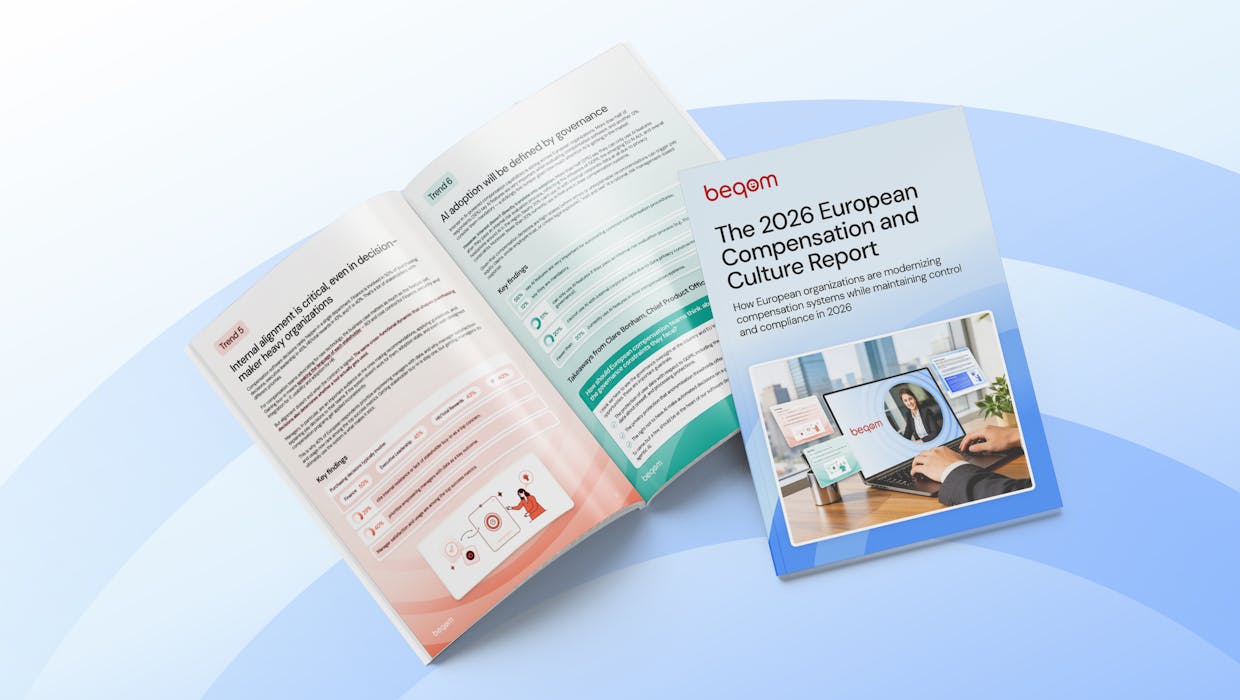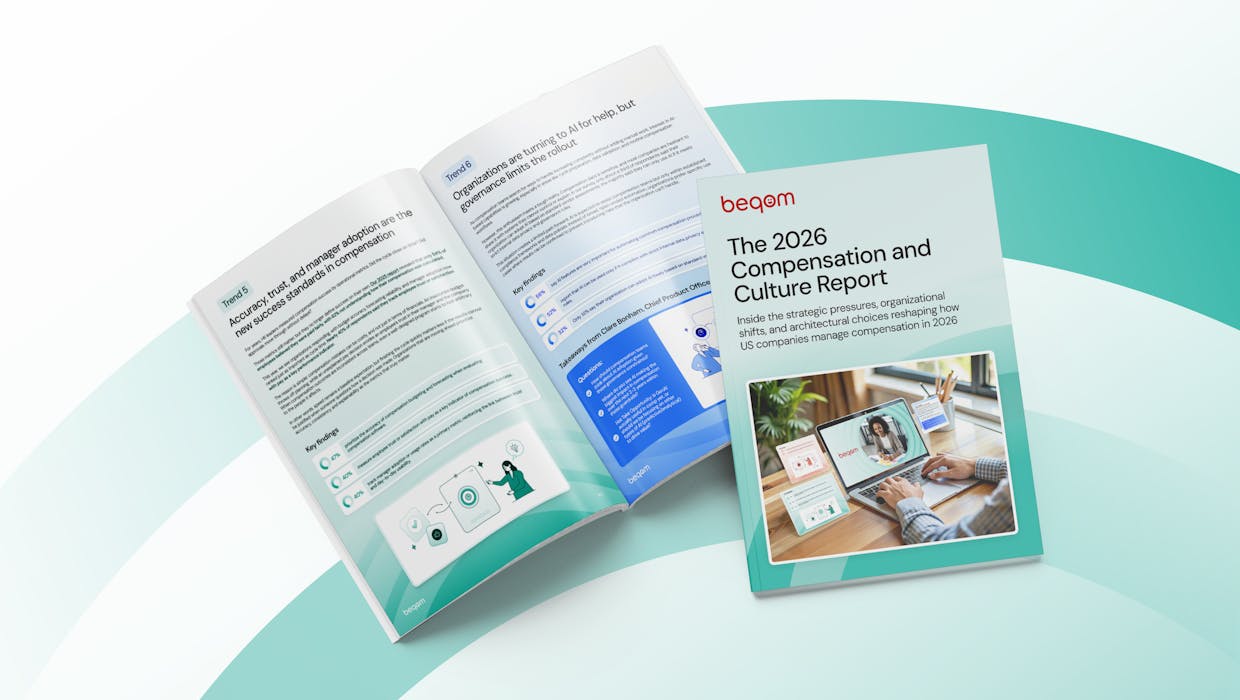Nurturing a Culture of Belonging in the Age of Remote and Hybrid Work

Learn more about the following beqom products
The advent of remote and hybrid work has revolutionized the way organizations operate, allowing for increased flexibility and access to talent worldwide. However, this shift has also brought forth a new challenge: maintaining a sense of connection and belonging among employees who no longer have regular face-to-face interactions.
The absence of physical proximity can have negative effects on performance, motivation, and retention, making it crucial for employers to proactively foster a culture of belonging. In this blog, we will explore the importance of cultivating belonging in the workplace, the secrets to making employees feel connected, and how companies can respond to the challenges of remote work while aligning with diversity, equity, inclusion, and belonging efforts.
The importance of cultivating belonging
A culture of belonging is a powerful catalyst for employee engagement, collaboration, and overall organizational success. When employees feel connected to each other and the organization, they are more likely to be motivated, productive, and loyal. Belonging enhances teamwork, fosters creativity, and leads to a positive work environment where everyone feels valued and supported. In a remote and hybrid work setting, where physical interactions are limited, intentionally nurturing a sense of belonging becomes paramount.
Without a strong sense of belonging, employees may experience feelings of isolation, disengagement, and reduced job satisfaction. These negative emotions can ultimately impact performance and productivity. When employees feel disconnected, they may miss out on valuable opportunities for collaboration, knowledge sharing, and mentorship, which can hinder professional growth. Additionally, a lack of belonging can exacerbate feelings of exclusion and inequality, adversely affecting diversity, equity, and inclusion efforts within the organization.
Creating a culture of belonging
To foster a culture of belonging in the era of remote and hybrid work, employers can employ a variety of strategies:
Prioritize communication and collaboration tools. Ok, you already meet via Zoom or Teams. But think about where else you might invest in reliable communication and collaboration tools to facilitate seamless interactions among employees. This ensures that distance doesn't hinder effective communication and collaboration, enabling employees to connect, share ideas, and work together irrespective of their physical locations. Very often a collaboration tool improves productivity and workflow even for those working together in an office.
Encourage social connections. Promote virtual social events and initiatives to recreate the sense of camaraderie that often arises from in-person interactions. Virtual coffee breaks, team-building activities, and online social platforms can help employees forge personal connections, strengthen relationships, and build a supportive network. But don't make these an added obligation that simply extends the work day for enforced "fun".
Emphasize inclusivity. Ensure that remote employees have an equal voice and access to opportunities. Encourage inclusive practices such as rotating meeting facilitation and providing visibility for remote team members. Actively seek out and address any potential biases or exclusionary behaviors to create a truly inclusive work environment. You may already have this mindset around workforce diversity, so just apply it equally to remote workers.
Implement performance management software. Leverage performance management software to bridge the gap between colleagues and between managers and employees. Look for tools that facilitate continuous peer feedback, support check-ins, and enable coaching conversations, even in remote or hybrid settings. By utilizing such software, organizations can ensure regular and meaningful interactions between employees and their peers and managers, promoting a sense of connection and growth.
Benefits of inclusive strategies
By responding to the challenge of fostering a culture of belonging in remote and hybrid work environments, organizations can reap numerous benefits:
Increased employee engagement and productivity. When employees feel a sense of belonging, they are more engaged, motivated, and committed to their work. This heightened engagement translates into improved productivity, efficiency, and overall business performance.
Enhanced retention and attraction of top talent. A strong culture of belonging can contribute to higher employee retention rates. When employees feel connected to their colleagues and the organization, they are more likely to stay and contribute to its long-term success. Additionally, an inclusive and connected workplace becomes an attractive proposition for top talent, helping organizations attract and retain diverse, high-performing individuals.
Boosted innovation and collaboration. A culture of belonging encourages collaboration, innovation, and the exchange of diverse perspectives. By fostering an environment where employees feel comfortable sharing their ideas and opinions, organizations can tap into the collective intelligence of their workforce, driving innovation and creative problem-solving.
Reinforced diversity, equity, and inclusion efforts. A sense of belonging aligns closely with diversity, equity, and inclusion efforts. When employees feel connected and included, organizations can create a more equitable and diverse workforce, promoting a culture that values and respects individual differences.
Fostering a culture of belonging in a remote work environment
In the era of remote and hybrid work, nurturing a culture of belonging is essential for organizations to thrive. By appreciating and addressing the challenges of disconnected employees, employers can enhance engagement, productivity, and retention while fostering a more inclusive and diverse work environment.
Leveraging communication tools, encouraging social connections, prioritizing inclusivity, and utilizing performance management software can all play crucial roles in creating a culture of belonging, where employees feel connected to one another and to the organization, ultimately driving success in the digital age.
Are performance and culture issues something you want to improve upon in your company? If so, book a free demo with one of our performance management experts today to see how beqom can benefit your team and help you create a culture of belonging.








